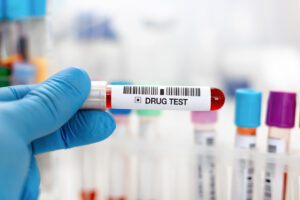
Law enforcement officials and medical engineers are getting better at testing for the presence of drugs in a person’s system. There are a number of different ways that a probation officer or similar law enforcement official may opt to check for the presence of drugs in your system, and some of these methods are more effective than others. In today’s blog, we take a closer look at five common drug testing methods that are oftentimes used during a person’s probationary period.
How Does A Probation Officer Test For Drugs?
Staying off drugs is a common inclusion in most probation sentences, as staying drug free can help to reduce recidivism and keep the public safe. Your probation officer may test you on a weekly or monthly basis depending on your crime and your individual probation requirements, but how they test you will be up to them. Here’s a look at five different drug detection procedures that may be used to check for the presence or drugs during a probation period.
1. Urine Tests – The most common drug test is a urinalysis, which involves testing a person’s urine sample to look for the presence of drugs. Depending on the conditions of your probation, you may be required to produce a sample while in the presence of someone who can verify the sample came directly from you. You may be told when your urine sample will be collected, or you may be subjected to random tests.
2. Hair Follicle Tests – Medical experts can also look for the presence of drugs in a person’s system by testing a sample of their hair. Hair follicles can detect the presence of drug use for a longer period than a urine sample. For example, a urine sample may only be able to determine if the person had drugs in their system within the last 3-5 days, while a hair follicle test can determine if the person has used drugs within the last few weeks.
3. Saliva Tests – Testing a sample of a person’s saliva can help to determine if a person recently ingested drugs. It may not be the best method of testing for a probation officer, but it can be useful if police are attempting to determine if a driver is under the influence of drugs during a roadside test.
4. Wearable Sweat Devices – Another testing measure that may be recommended for certain offenders is a sweat patch or a similar electronic wearable that measures if any drug particles are found in a person’s sweat. You may have to turn the patch in for testing, or you may have an electronic device that automatically sends your results to your probation officer.
5. Blood Test – Finally, it’s rare for a blood sample to be collected for testing during your regular probation hearings, but a blood test may be carried out if you are found unresponsive or you are taken to a hospital after being involved in a suspected DUI case. Police cannot forcibly withdraw your blood, but they can collect and test your blood with your consent or if they obtain a warrant to do so.
For more information about any of these drug testing techniques, or for help with a different criminal issue, reach out to Avery and the team at Appelman Law Firm today at (952) 224-2277.





